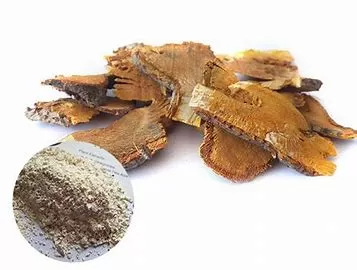- 0086-571-85302990
- sales@greenskybio.com
Heavy Metals Found in Protein Powders: What Consumers Need to Know
2025-03-25
Protein powders, often regarded as a convenient path to achieving fitness goals, may carry hidden risks. A new study by Clean Label Project, a consumer product safety nonprofit, revealed that nearly half of 160 protein powder products tested had dangerous levels of heavy metals such as lead and cadmium.
The study examined various products from 70 of the top-selling supplement brands and found that plant-based protein powders were particularly concerning, with three times the lead content compared to whey-based alternatives. Additionally, chocolate-flavored protein powders were shown to contain up to four times more lead than vanilla-flavored versions.
This is not the first revelation of heavy metals in protein powders. A previous 2018 Clean Label Project study detected measurable levels of lead in 75% of tested products.
Why Are Heavy Metals Found in Protein Powders?
Heavy metals like lead, cadmium, and arsenic occur naturally in the earth’s crust and can end up in products through soil absorption during agricultural growth. Plants absorb these metals, and humans are exposed to them through plant-derived products. Chocolate, derived from cacao plants, was found to have higher levels of heavy metals compared to synthetic vanilla flavoring, offering an explanation for the disparity in product contamination.
Kelly Krisna Johnson-Arbor, MD, a medical toxicologist with MedStar Georgetown University Hospital, noted that production methods—both agricultural and manufacturing—can further contribute to metal contamination during the processing of foods and supplements.
This issue isn’t limited to protein powders. Heavy metals have also been flagged in everyday items like baby food, wine, lettuce, and even tampons, due to growing conditions or manufacturing residuals.
Should You Stop Using Protein Powders?
The discovery of heavy metals in protein powders may alarm consumers, but experts say eliminating protein supplements entirely isn’t necessary. Research, including a 2020 study, indicates that the levels of heavy metals typically present in protein powders do not pose substantial risks for most adults.
However, managing consumption frequency or opting for safer alternatives may be wise, especially for individuals with higher vulnerability, such as pregnant people and children. Exposure to heavy metals like lead can affect cognitive development and pregnancy outcomes.
“Long-term exposure—rather than single instances—is the primary concern when evaluating risks associated with metals like cadmium and lead,” explained Tunde Akinleye, an analytical chemist and food safety expert at Consumer Reports.
For those concerned about heavy metal content, seeking protein powders with certifications from recognized organizations such as USP, ConsumerLab, or NSF is a good first step. Although the Food and Drug Administration (FDA) aims to address heavy metal contamination through its Toxic Elements Working Group, dietary supplements such as protein powders are not routinely tested before they reach store shelves.
Jaclyn Bowen, MPH, MS, executive director at Clean Label Project, emphasized the importance of informed consumer choices. "Awareness doesn’t require complete avoidance,” Bowen stated. “Opting for brands committed to rigorous testing for contaminants can significantly reduce risks.”
Balancing Risks and Benefits
Protein powders remain a staple in many lifestyles, offering a convenient source of dietary protein. For consumers concerned about heavy metal contamination, shifting toward safer brands with certifications can minimize risk without sacrificing nutritional goals. Meanwhile, experts encourage consumers to prioritize transparency in labels and manufacturing standards.
-
Passion Fruit: Health Benefits and Enjoy
2025-03-25
-
Hops: All You Need to Know
2025-03-25
-
Hawthorn: What You Need to Know
2025-03-25















